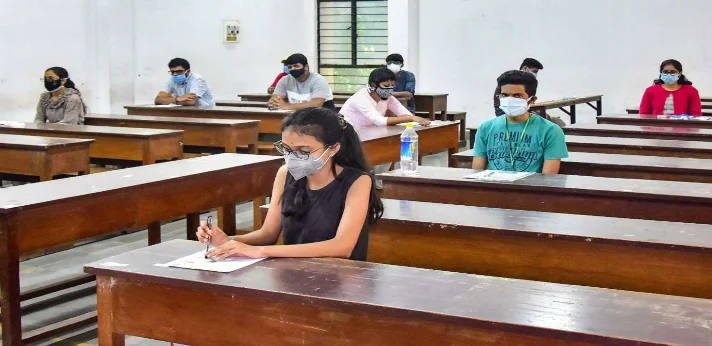The National Eligibility-cum-Entrance Test Undergraduate (NEET-UG), currently conducted in pen-and-paper mode, may transition to a Computer-Based Test (CBT) system, as discussions are underway between the Union Education Ministry and the Union Health Ministry, according to a PTI report.
The High-Level Committee, established to propose reforms for the NEET-UG examination and the National Testing Agency (NTA), has recommended that every district headquarters be equipped with a standardized and well-facilitated Computer-Based Test (CBT) centre.
The high-level panel, chaired by former ISRO Chief R Radhakrishnan, was formed by the Central Government in July to ensure transparent, smooth, and fair examination processes under the NTA, following allegations of irregularities in NEET-UG and the PhD Entrance Test (NET).
NEET-UG faced scrutiny over alleged leaks, while the UGC-NET was cancelled after concerns about its compromised integrity. Both cases are under investigation by the CBI. Additionally, the CSIR-UGC NET and NEET-PG exams were cancelled as precautionary measures at the last moment.
Reforms Suggested by High-Level Panel
The High-Level Panel has proposed significant reforms to restructure the National Testing Agency (NTA). It recommended establishing 10 specialized verticals, each led by a director, focusing on areas such as technology, products, operations, test security, and surveillance.
To enhance the NTA’s efficiency, the committee emphasized the need for internal domain-specific experts and a leadership team with proven experience and skills to oversee the testing processes.
The panel also suggested the creation of an “empowered and accountable” governing body for the NTA. This body would include three sub-committees responsible for test audits, ethics and transparency; nominations and staff conditions; and stakeholder relations.
A notable recommendation was the introduction of a DIGI-EXAM system, modeled after DIGI-YATRA, to ensure that only the authorized candidate participates in the intended program. The system would feature multi-stage authentication of the candidate’s identity using Aadhaar, biometrics, and AI-based data analytics.
For testing infrastructure, the panel proposed integrating resources from Kendriya Vidyalayas, Navodaya Vidyalayas, and reputed universities and institutions to create a network of 400-500 testing centers nationwide. This network, to be developed within a year, would offer a testing capacity of 2-2.5 lakh candidates in a single session.
The panel also envisioned that every district headquarters should eventually have a standardized and well-equipped Computer-Based Testing (CBT) center to facilitate examinations across the country.
Limiting NTA’s Role to Entrance Examinations
The High-Level Panel has proposed reforms to streamline the National Testing Agency’s (NTA) operations, particularly in the context of conducting the NEET UG examination. The panel observed that the NTA had stretched its resources to accommodate requests from various agencies for managing end-to-end testing operations.
In its report, the panel recommended that the NTA focus primarily on conducting entrance examinations, suggesting that its involvement in other types of exams should only be considered after its capacity is significantly enhanced.
Confirming the shift in responsibilities, Union Education Minister Dharmendra Pradhan announced on Tuesday that starting in 2025, the NTA would no longer conduct recruitment exams. Instead, it will concentrate exclusively on entrance tests for higher education.
Source: medicaldialogues

